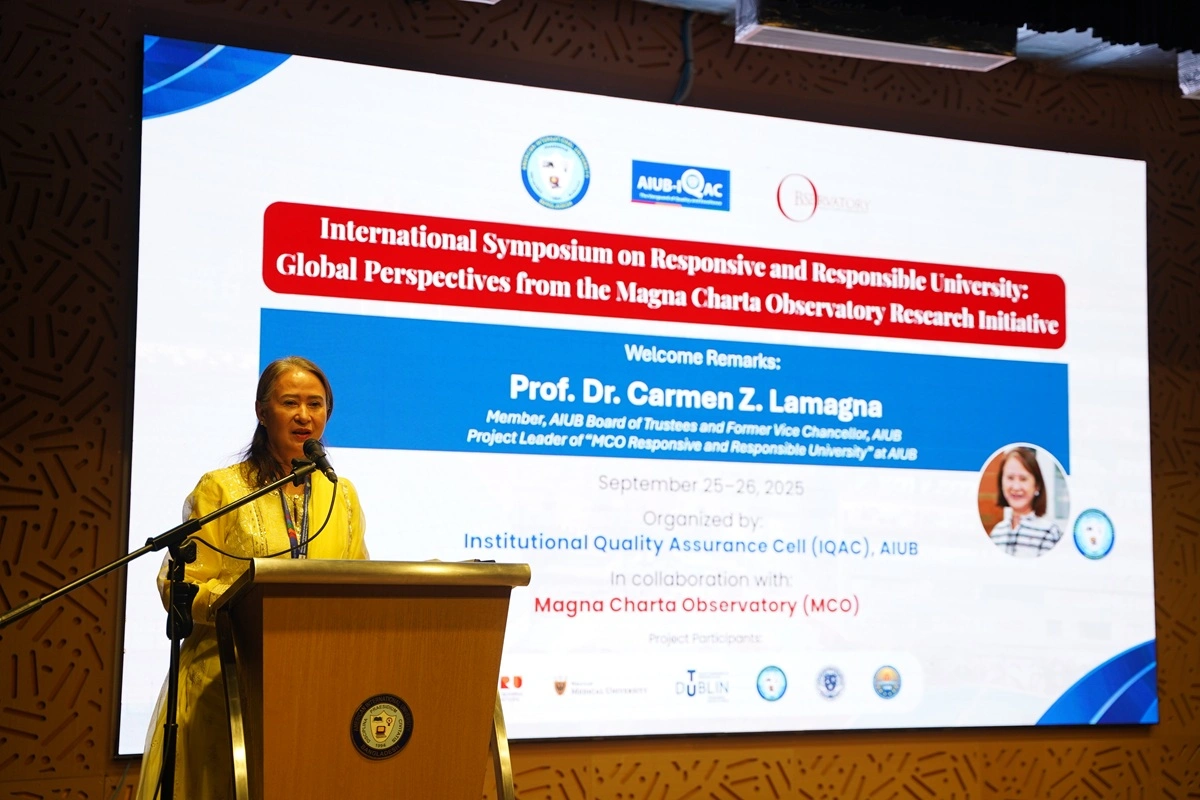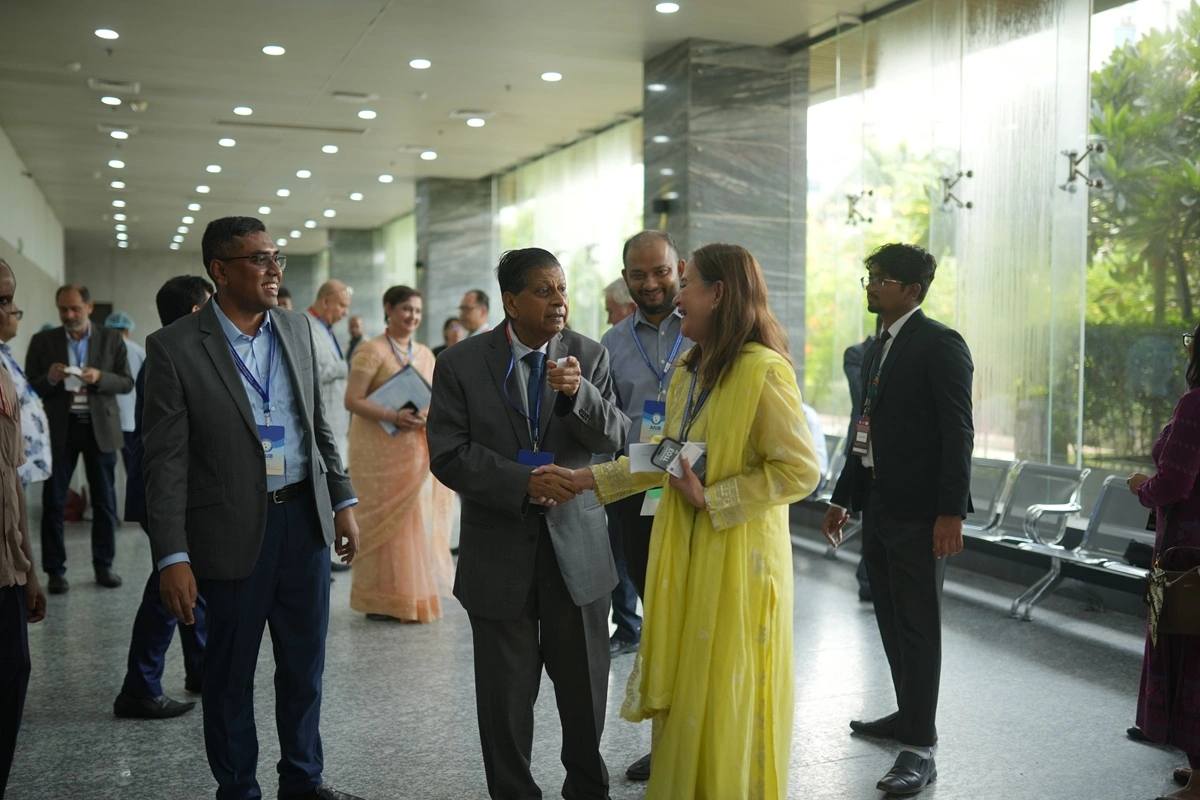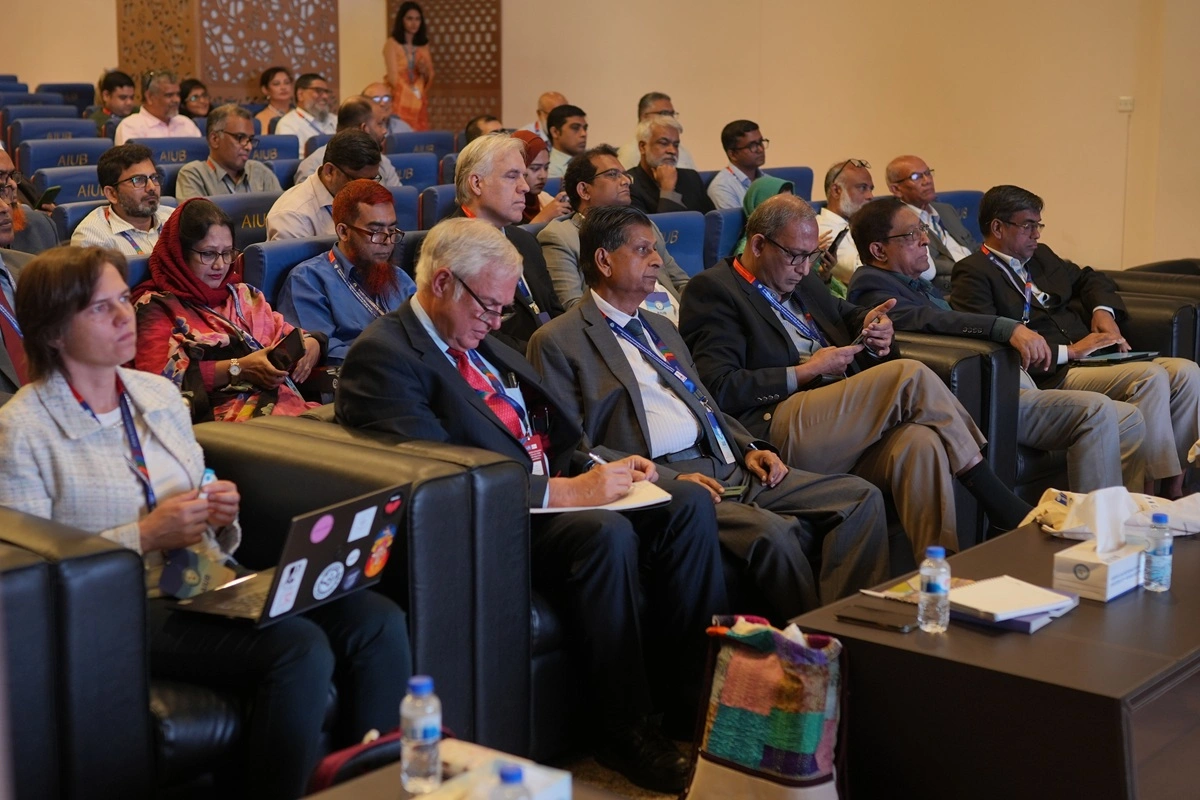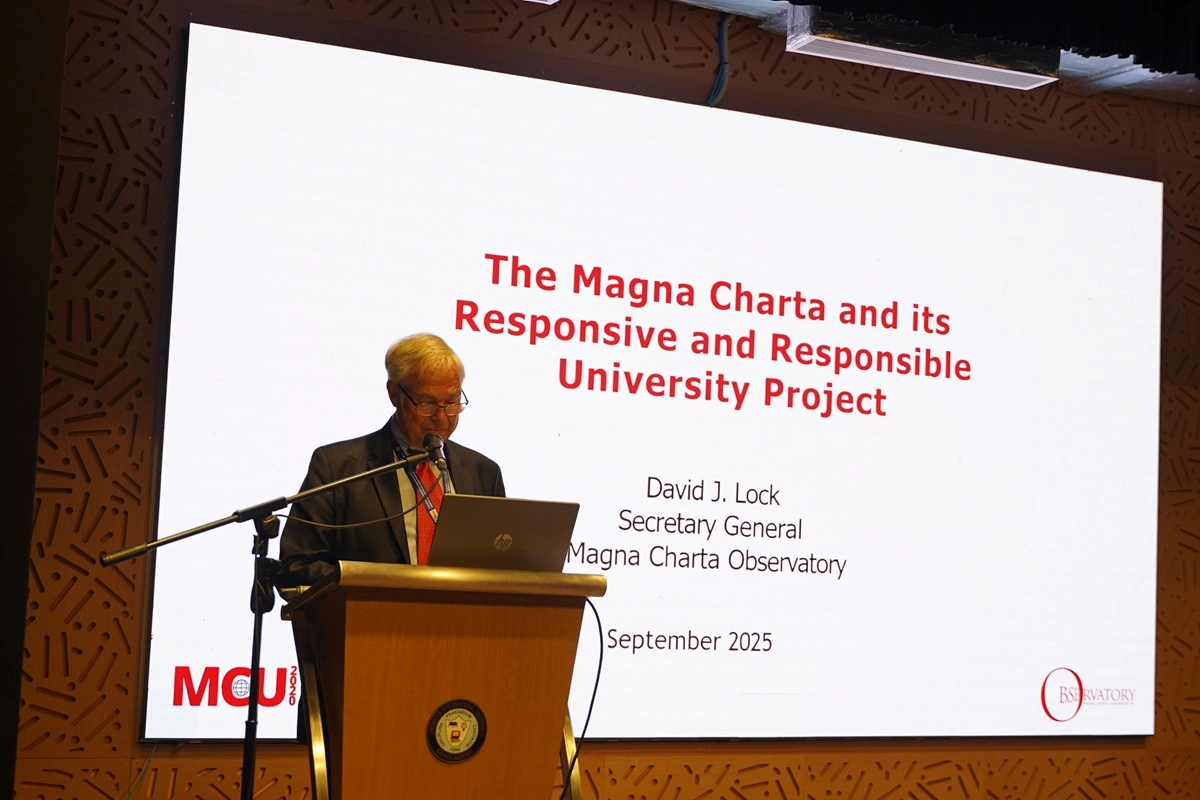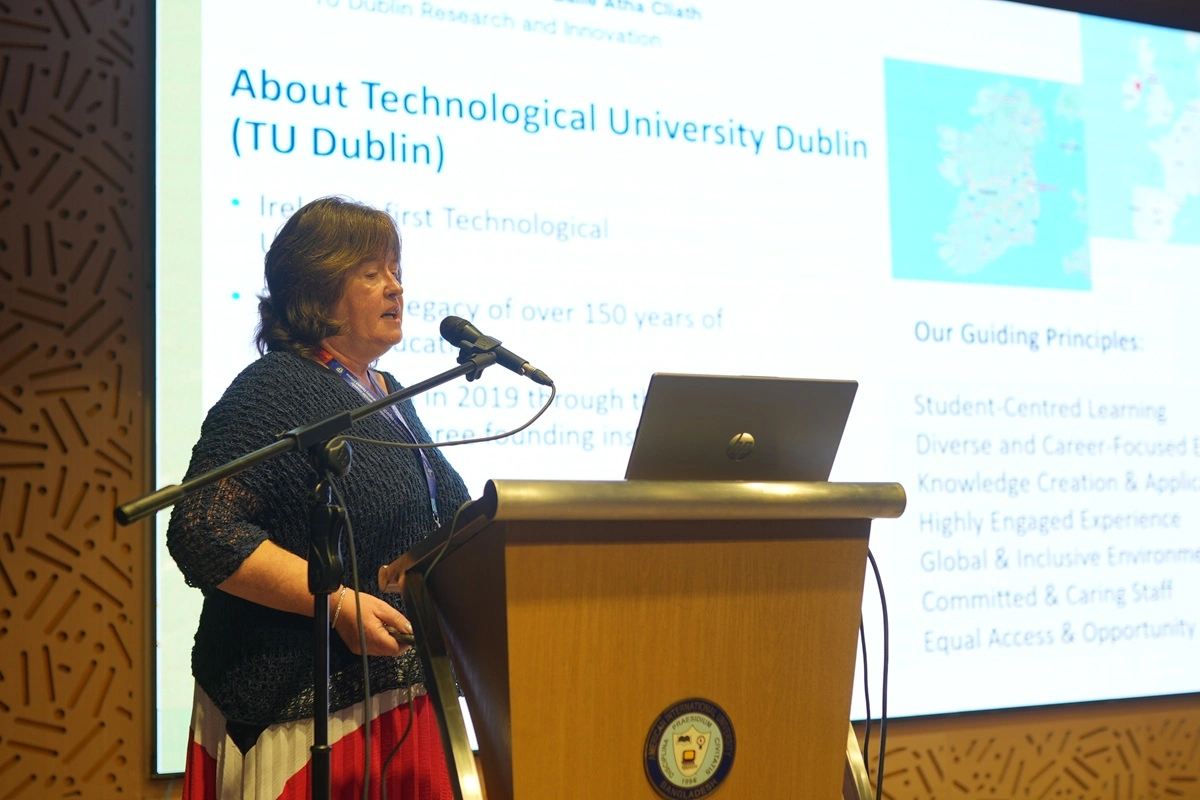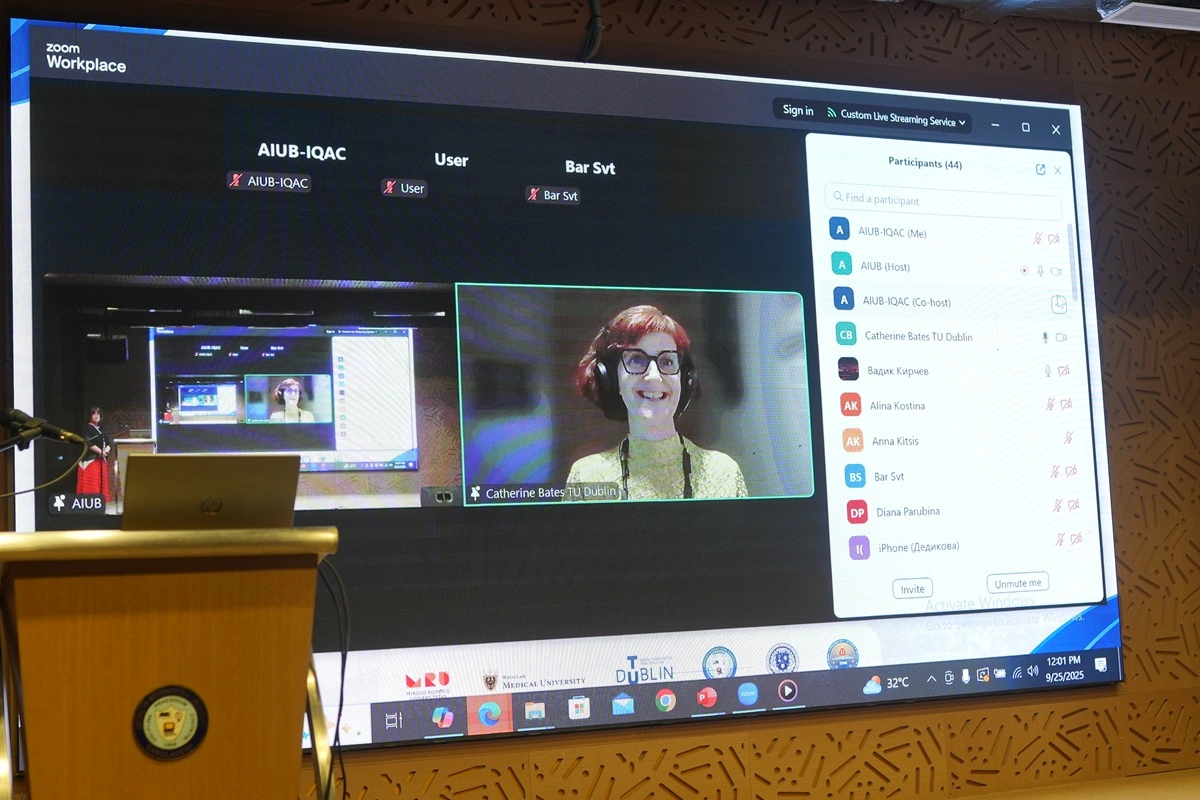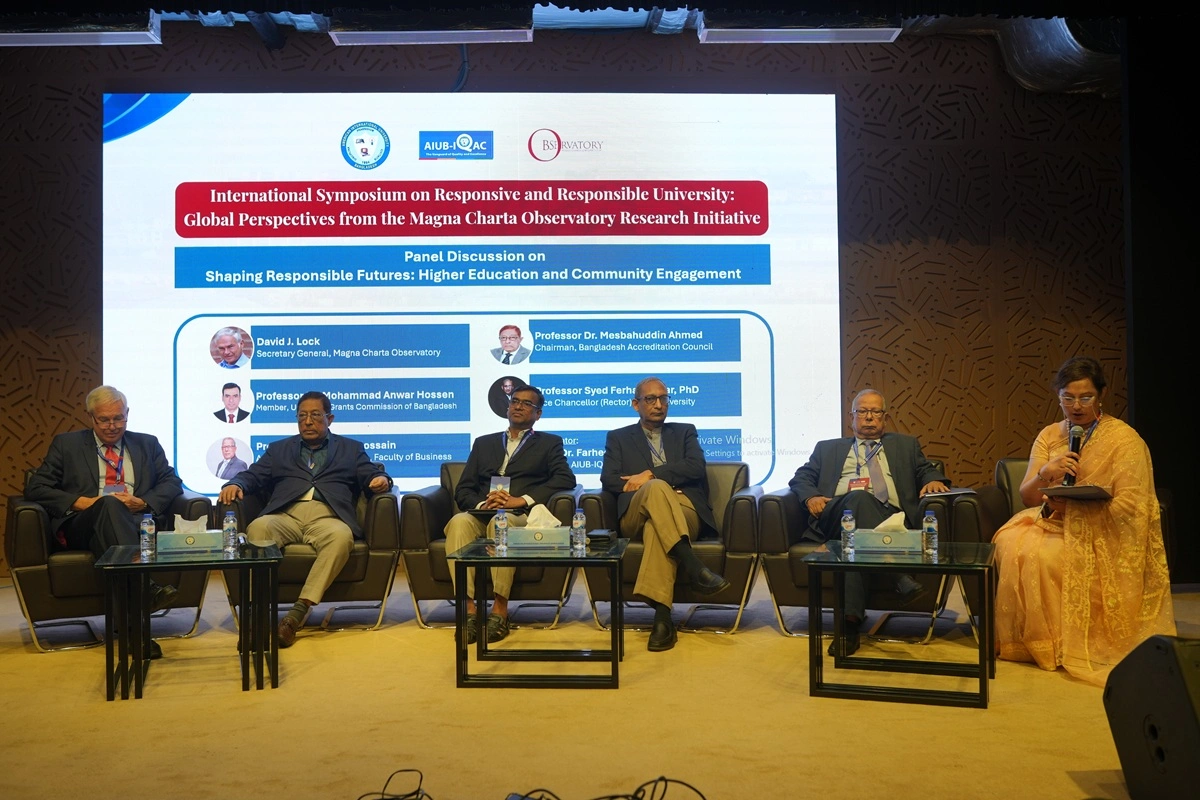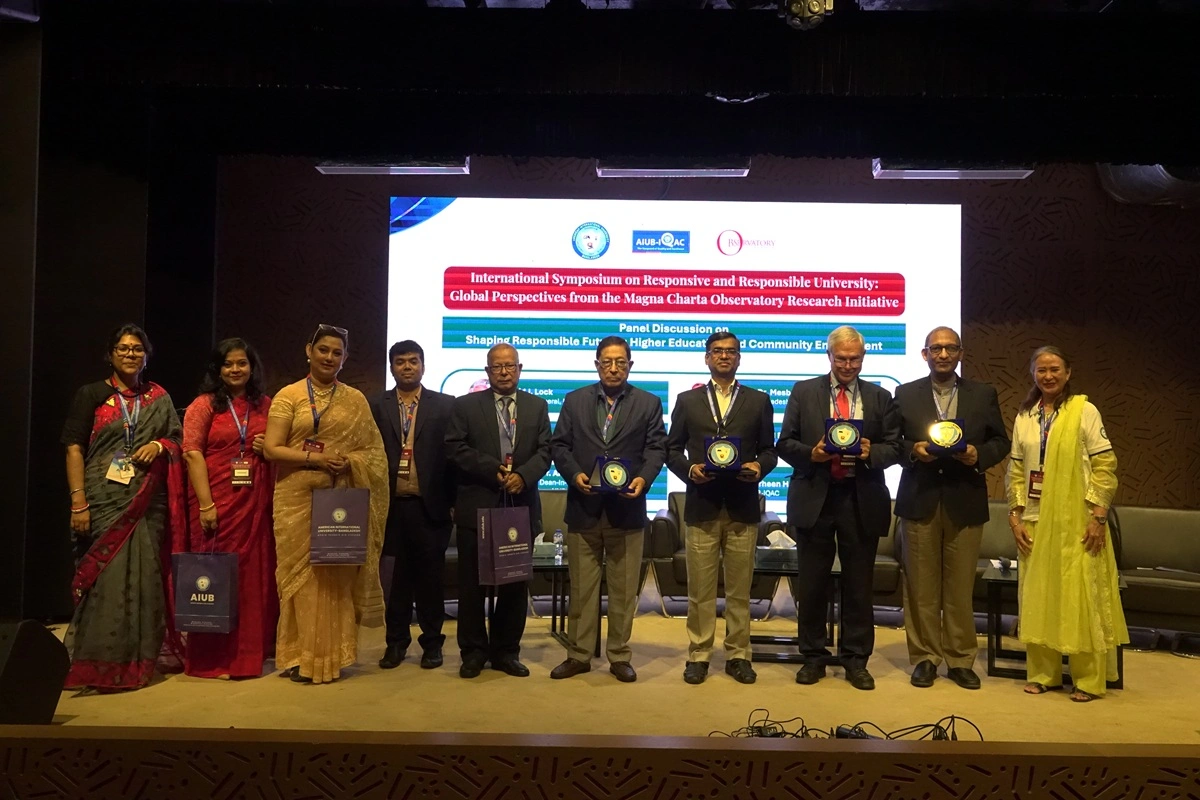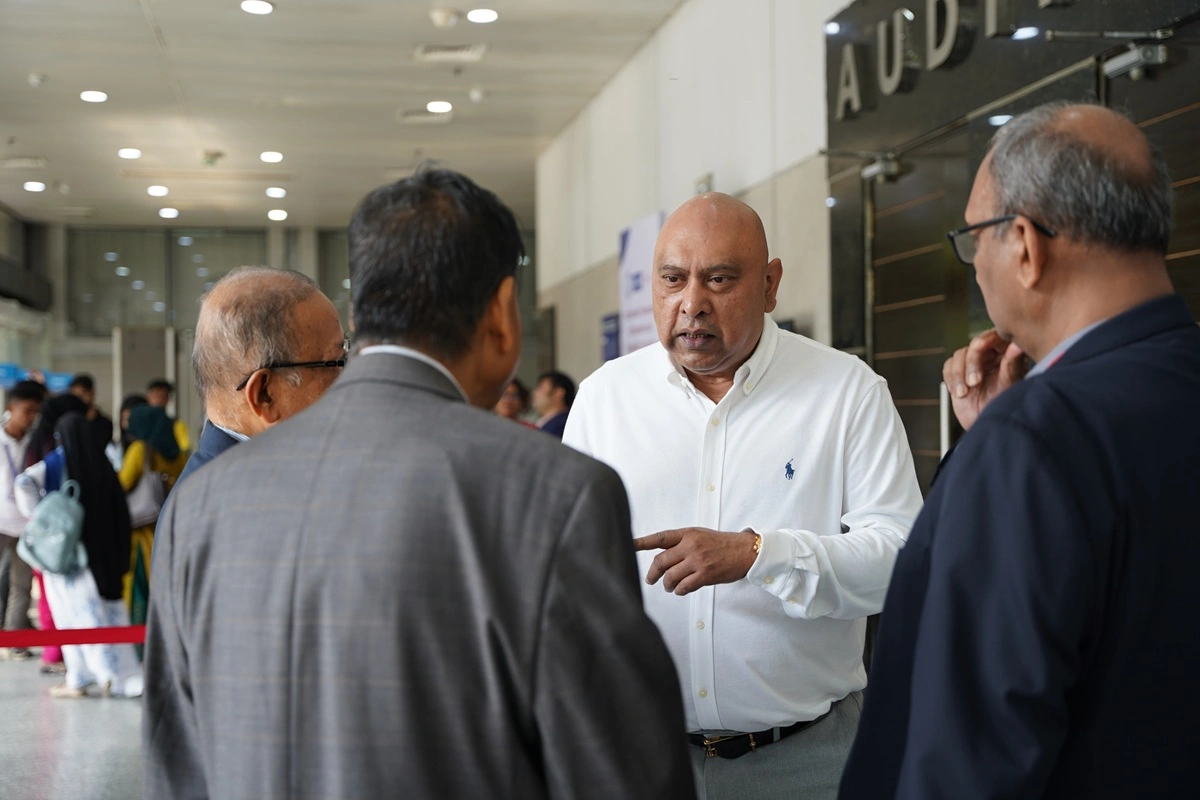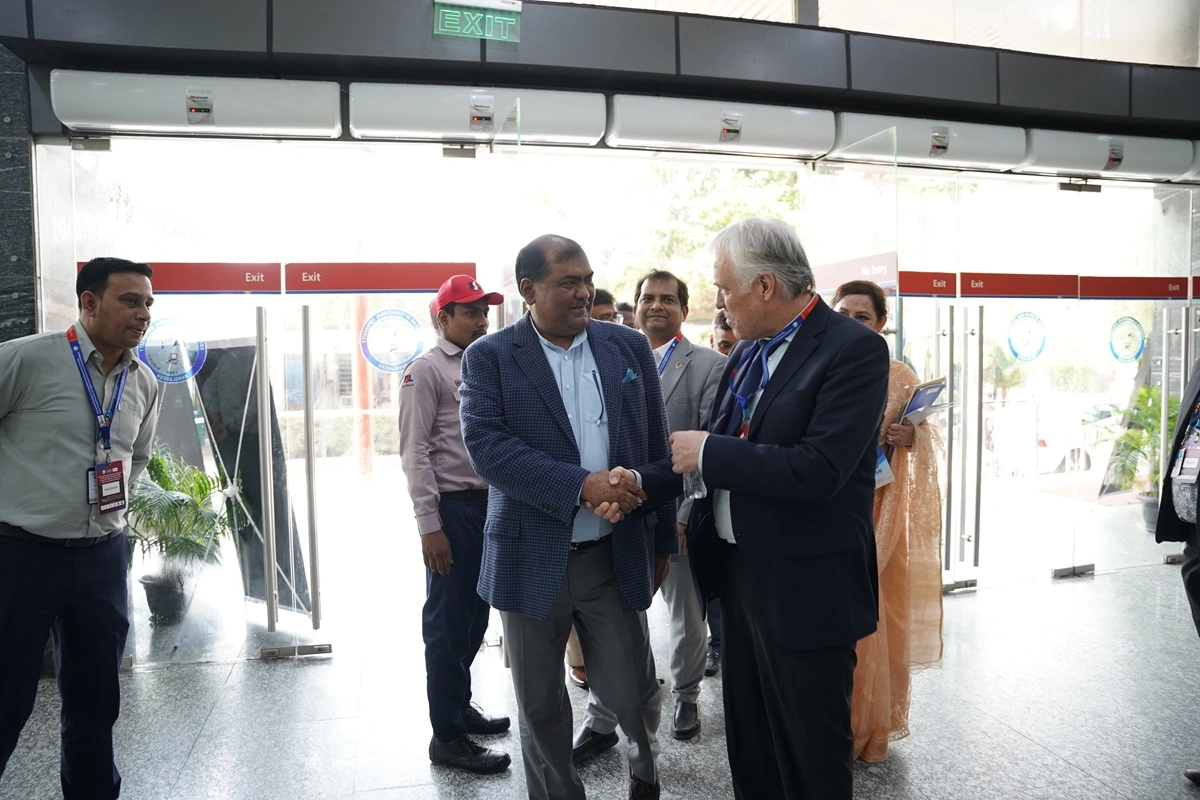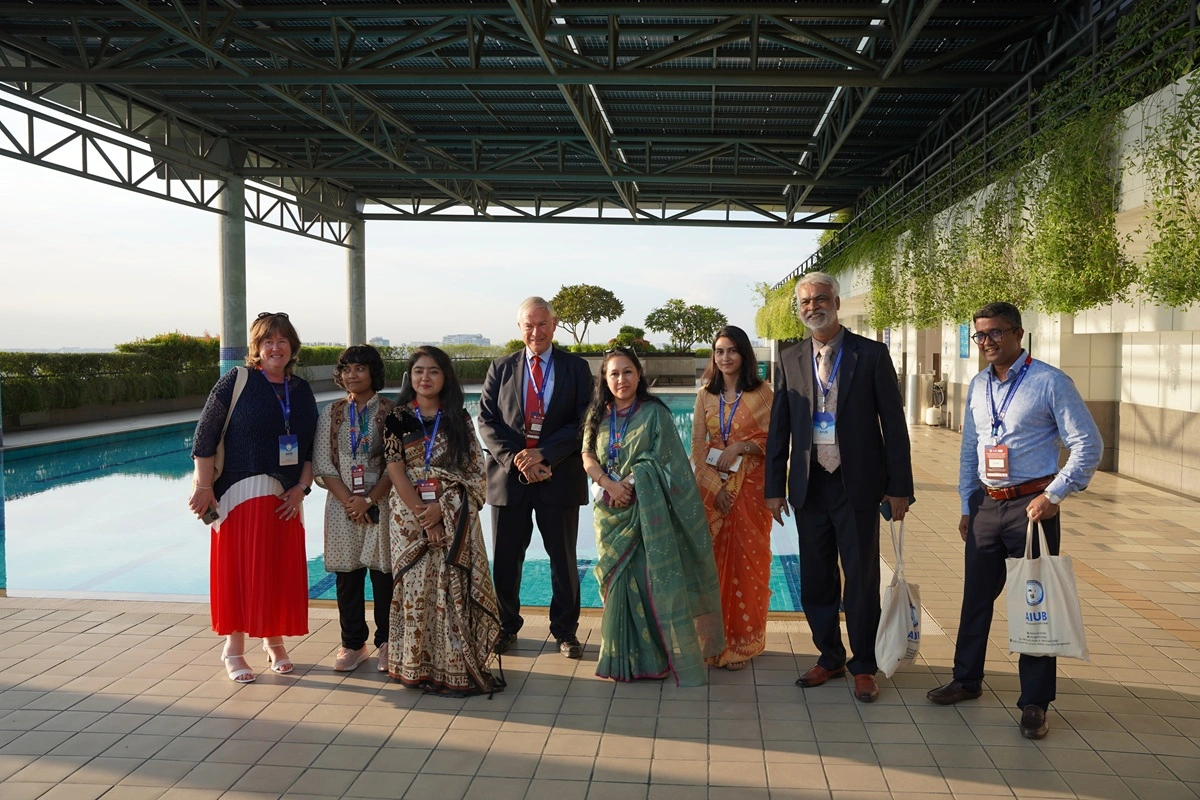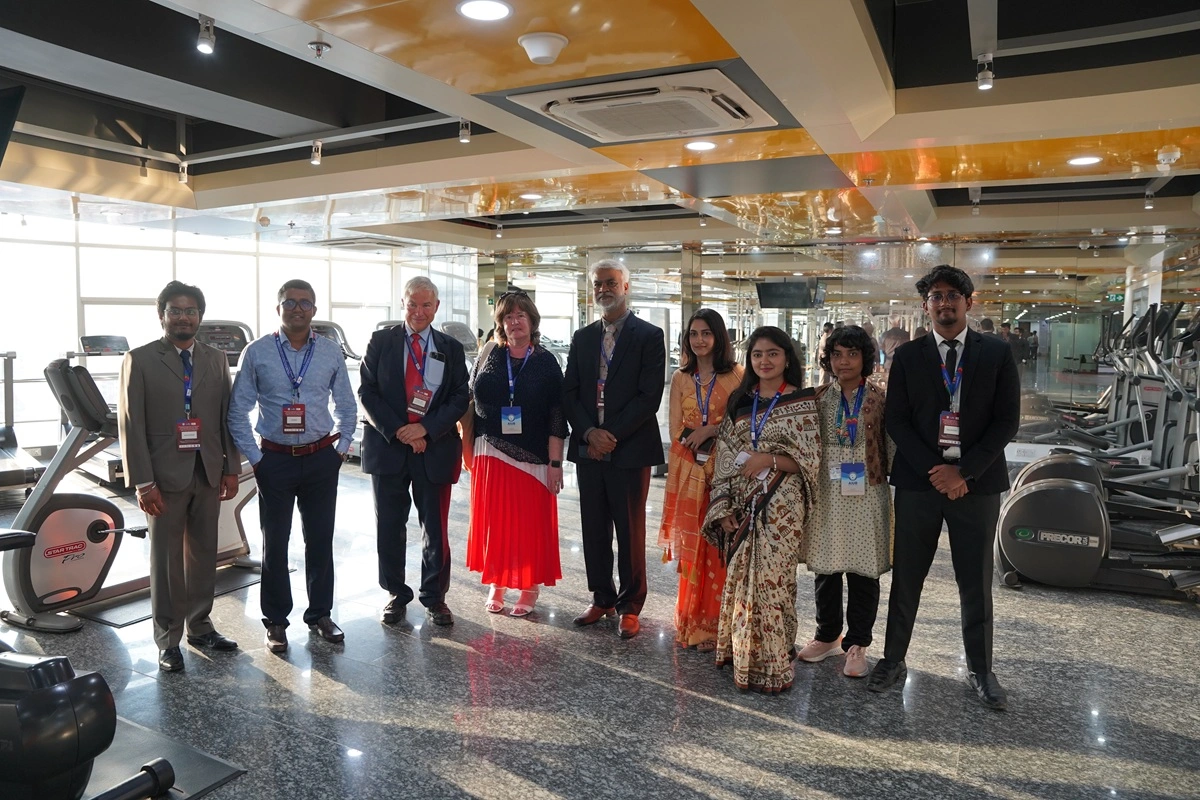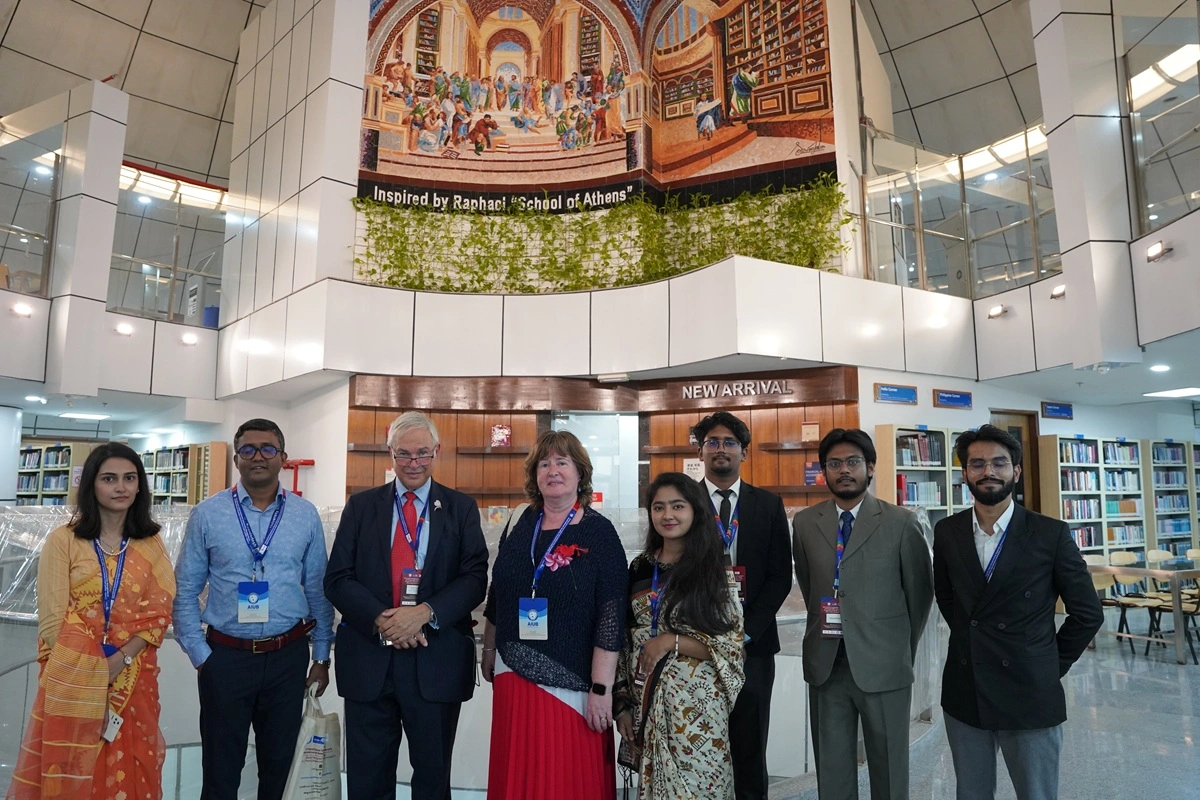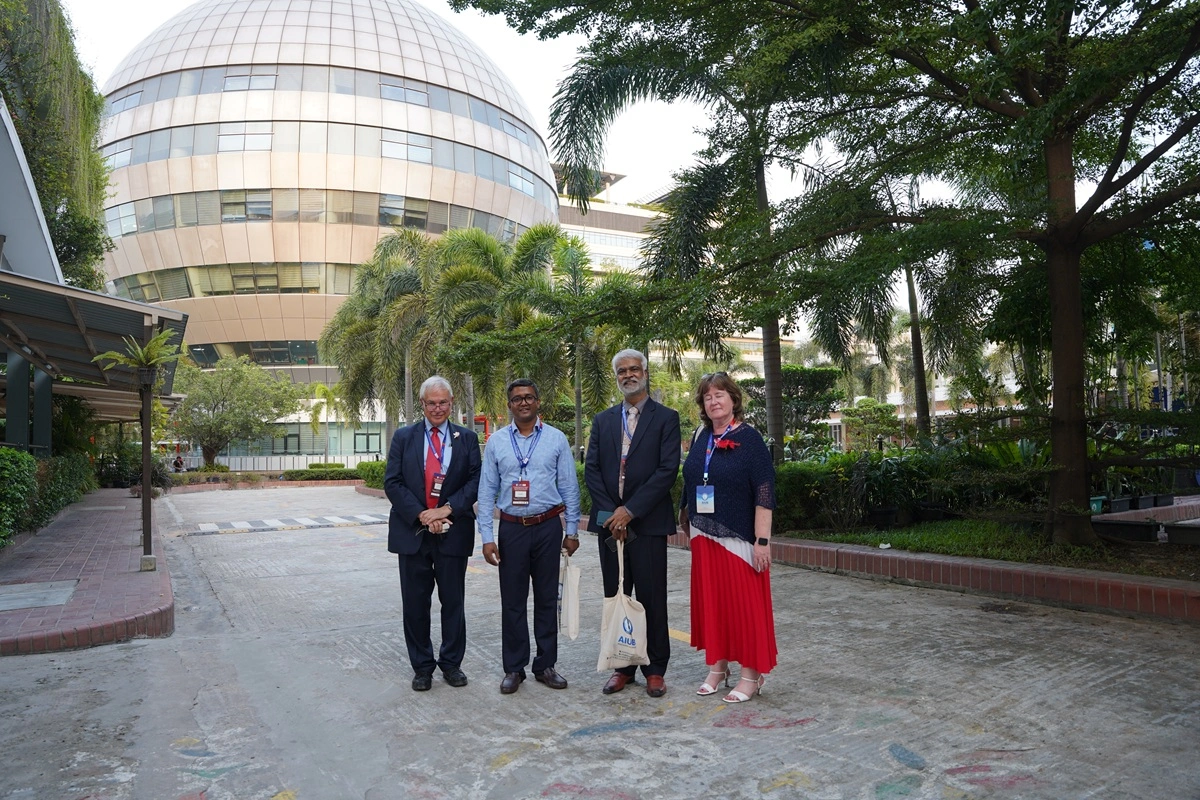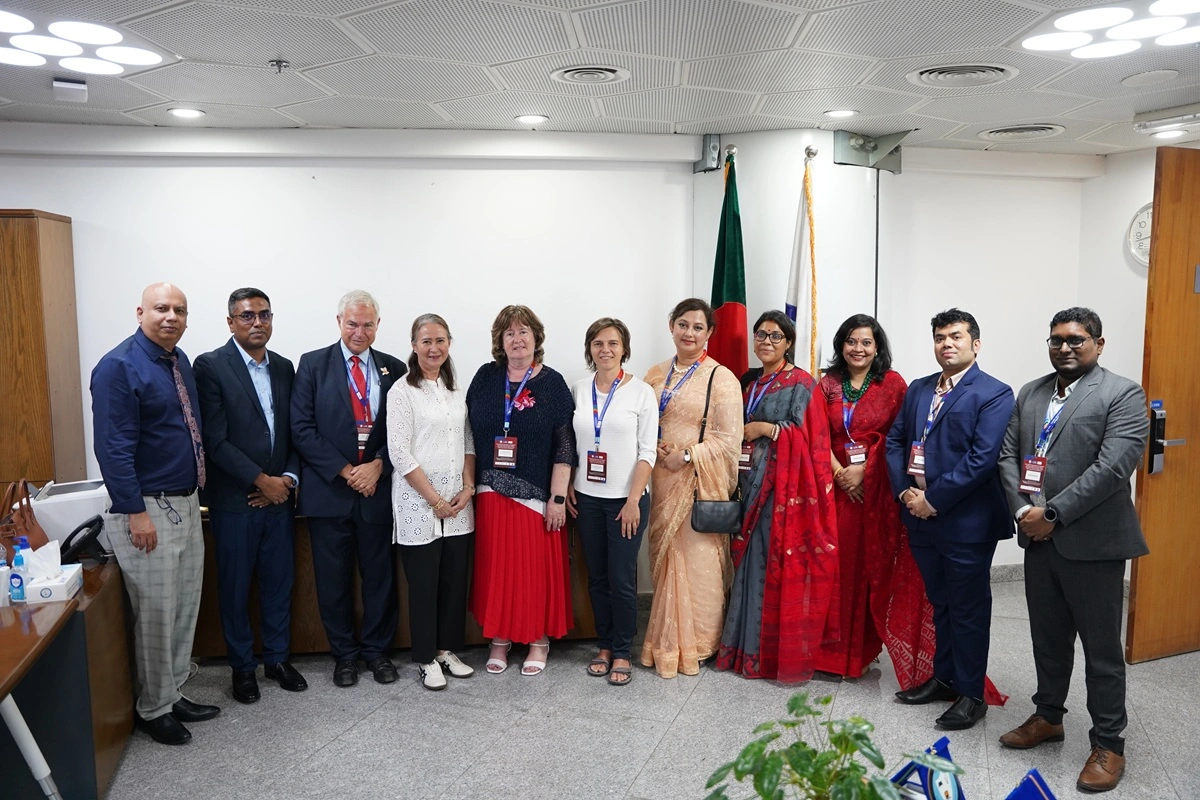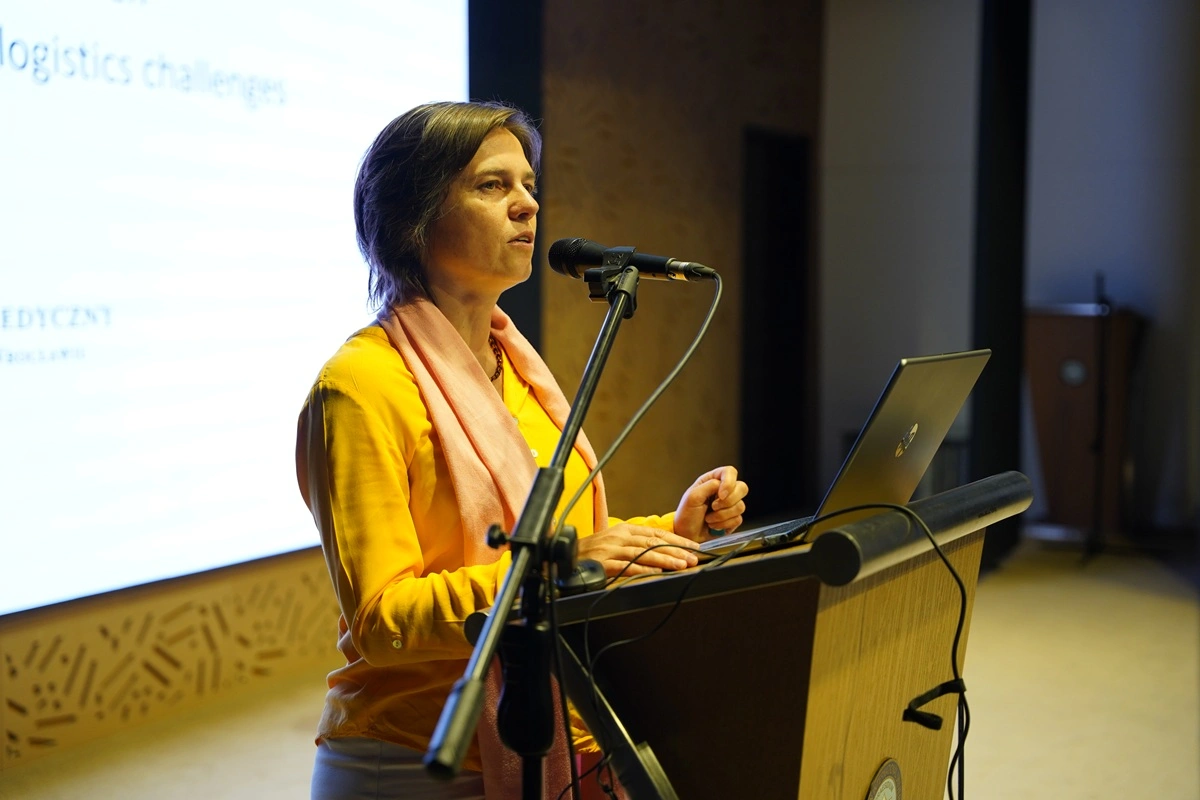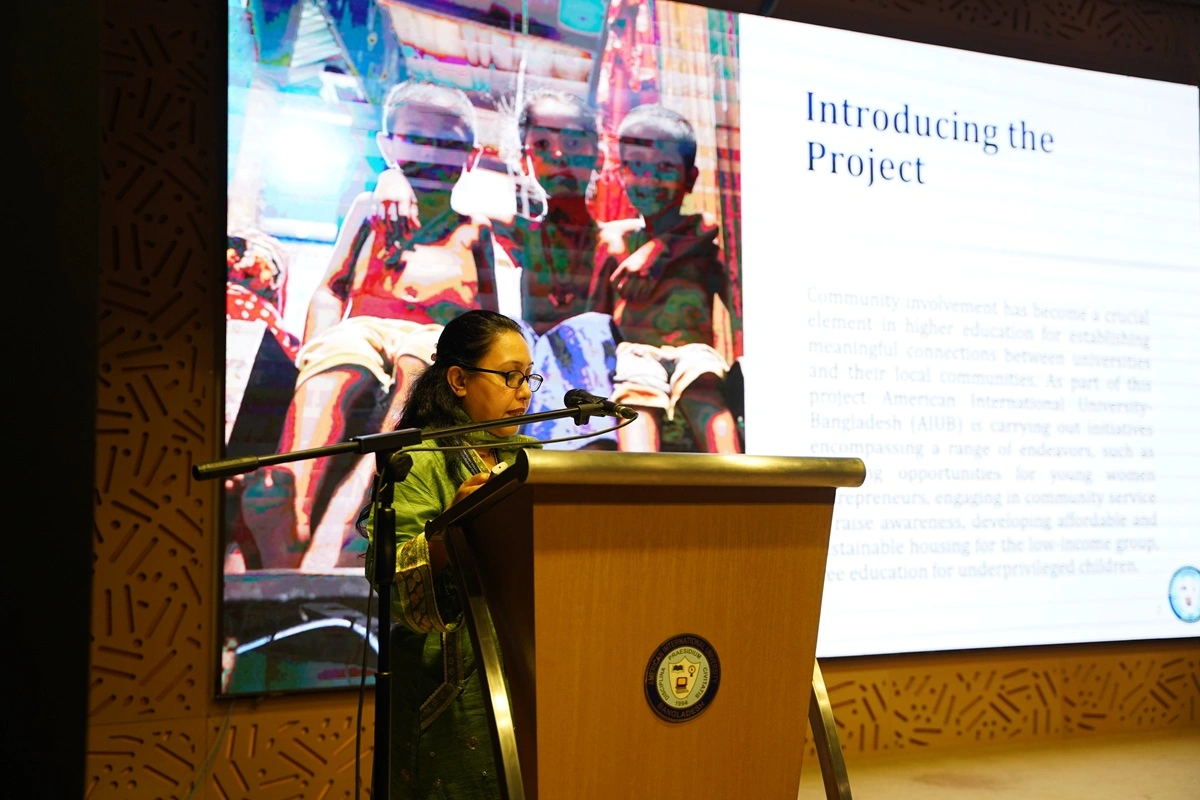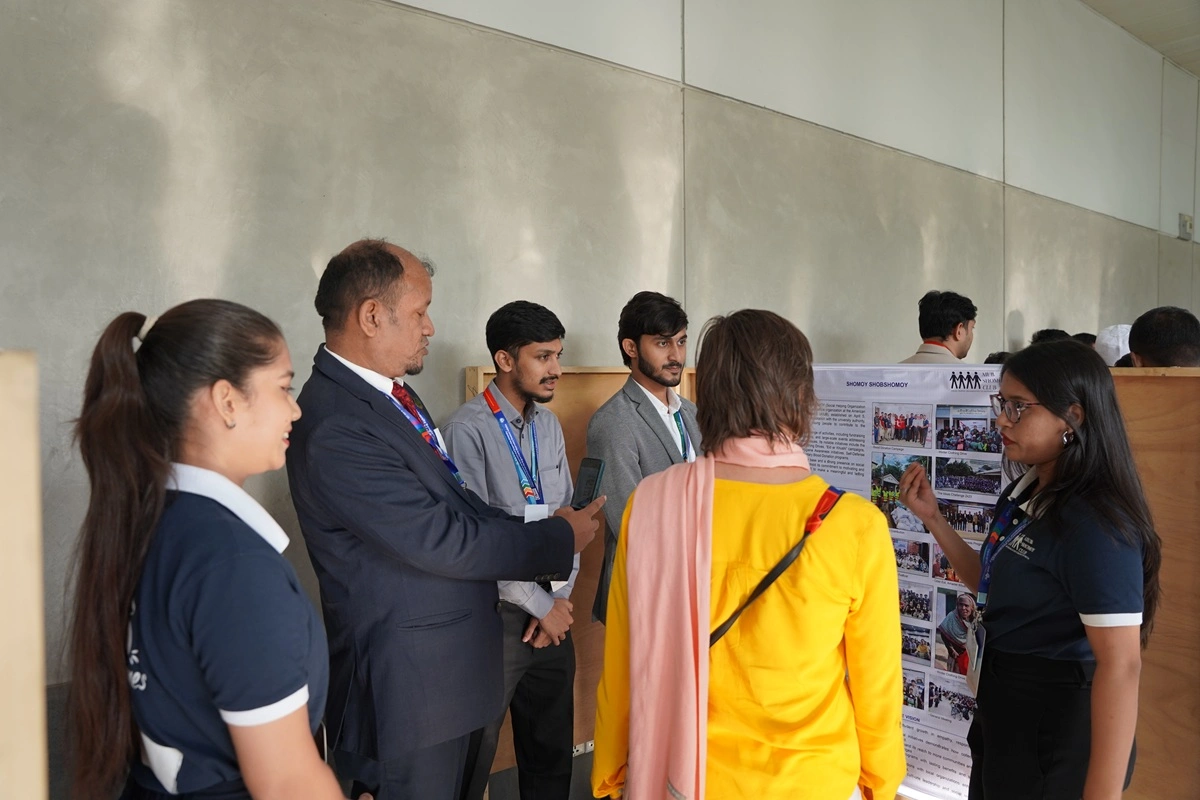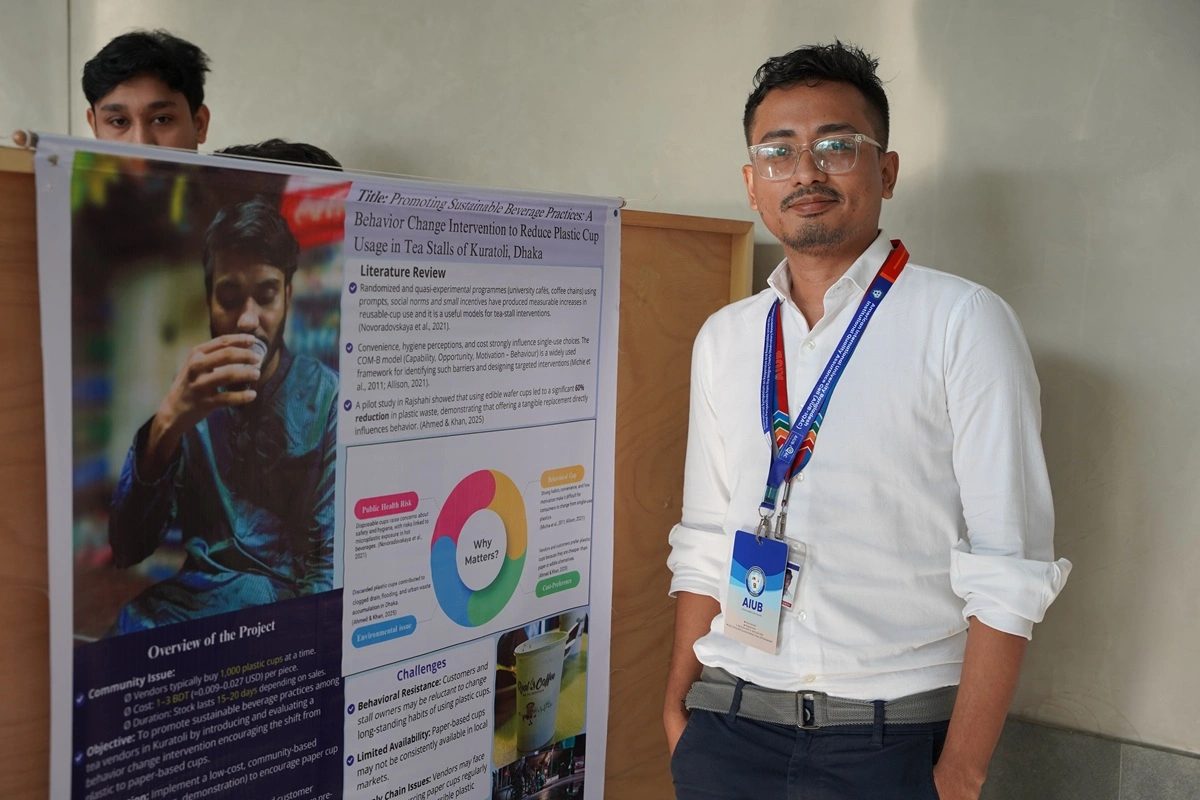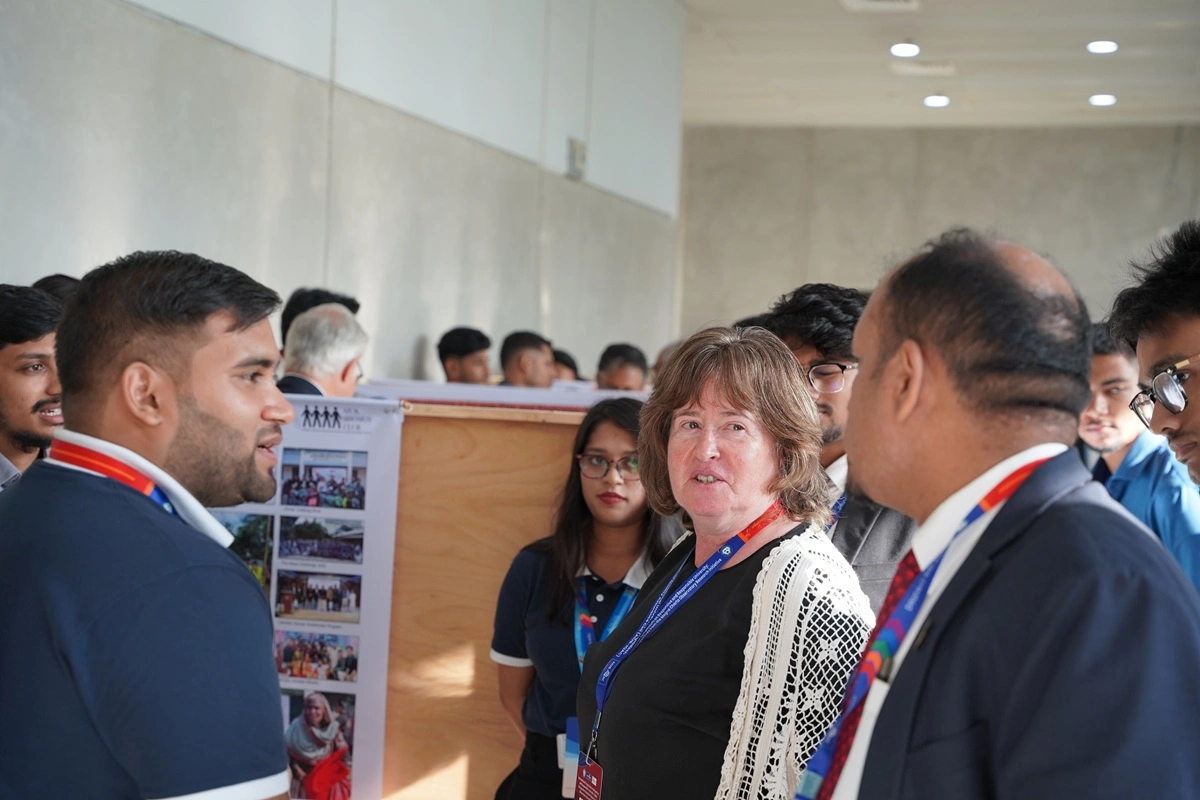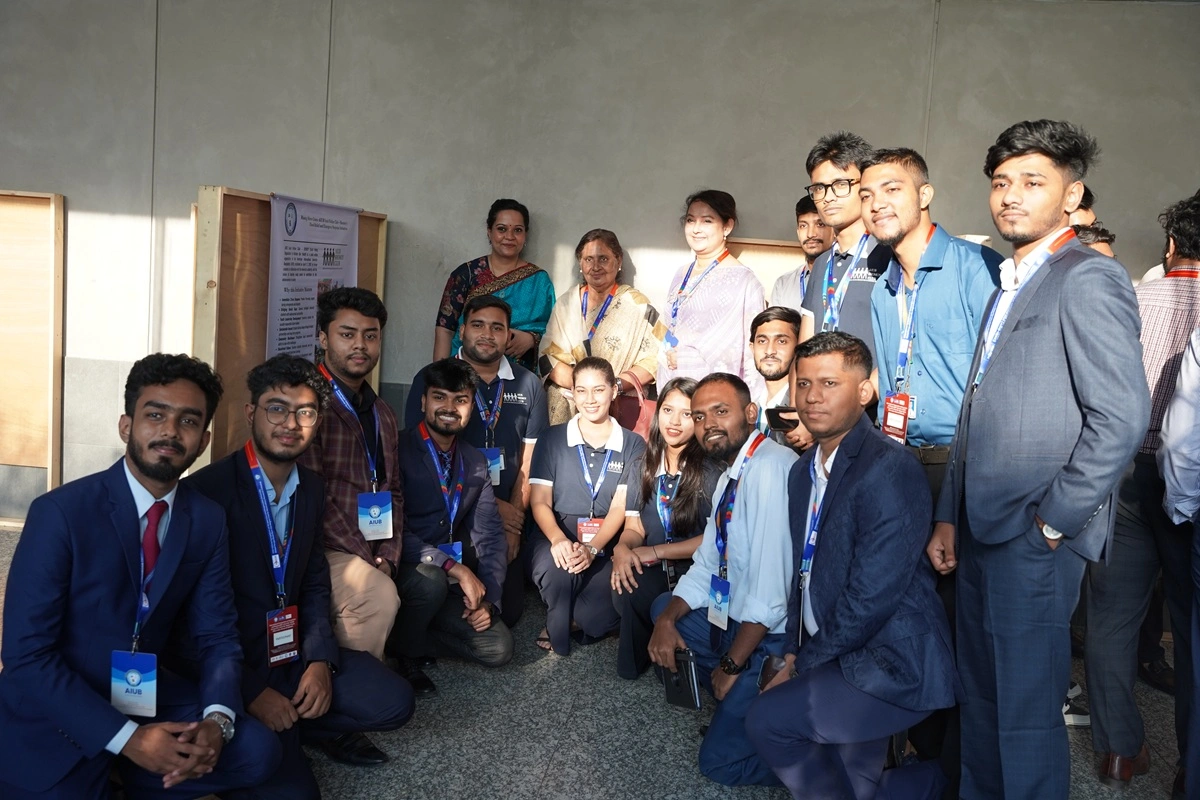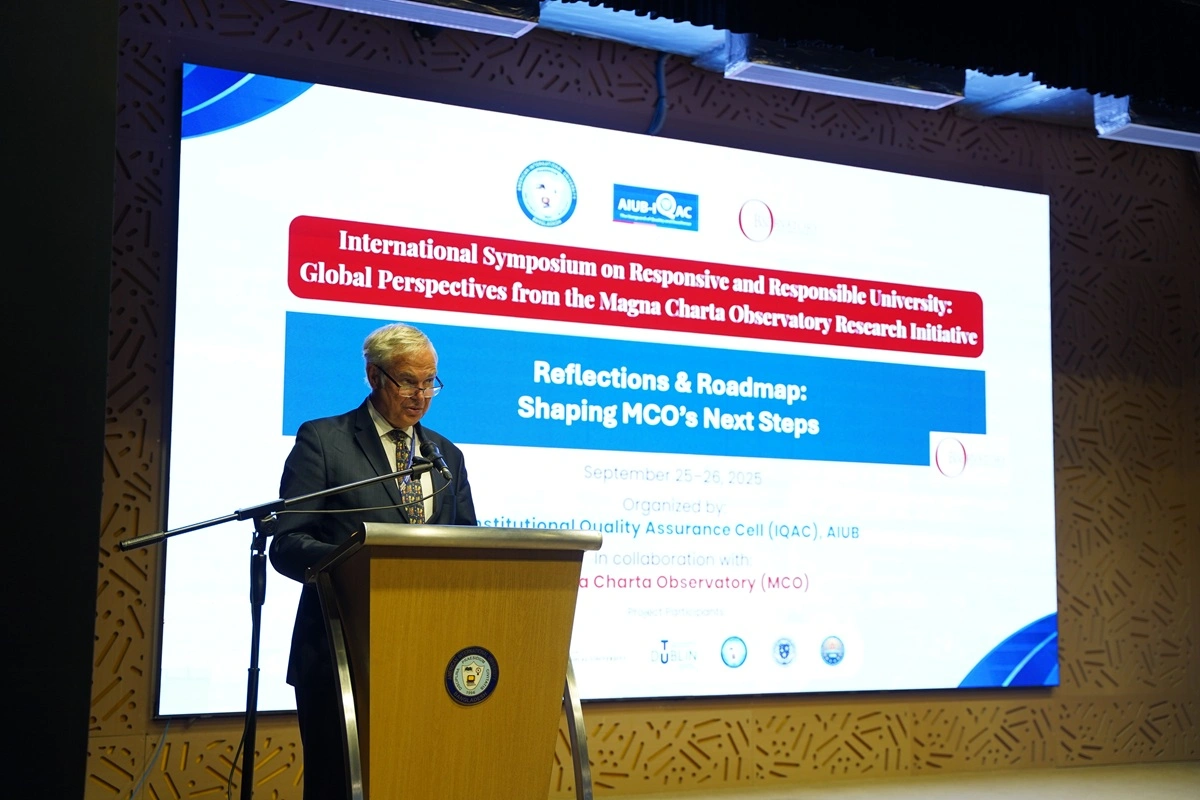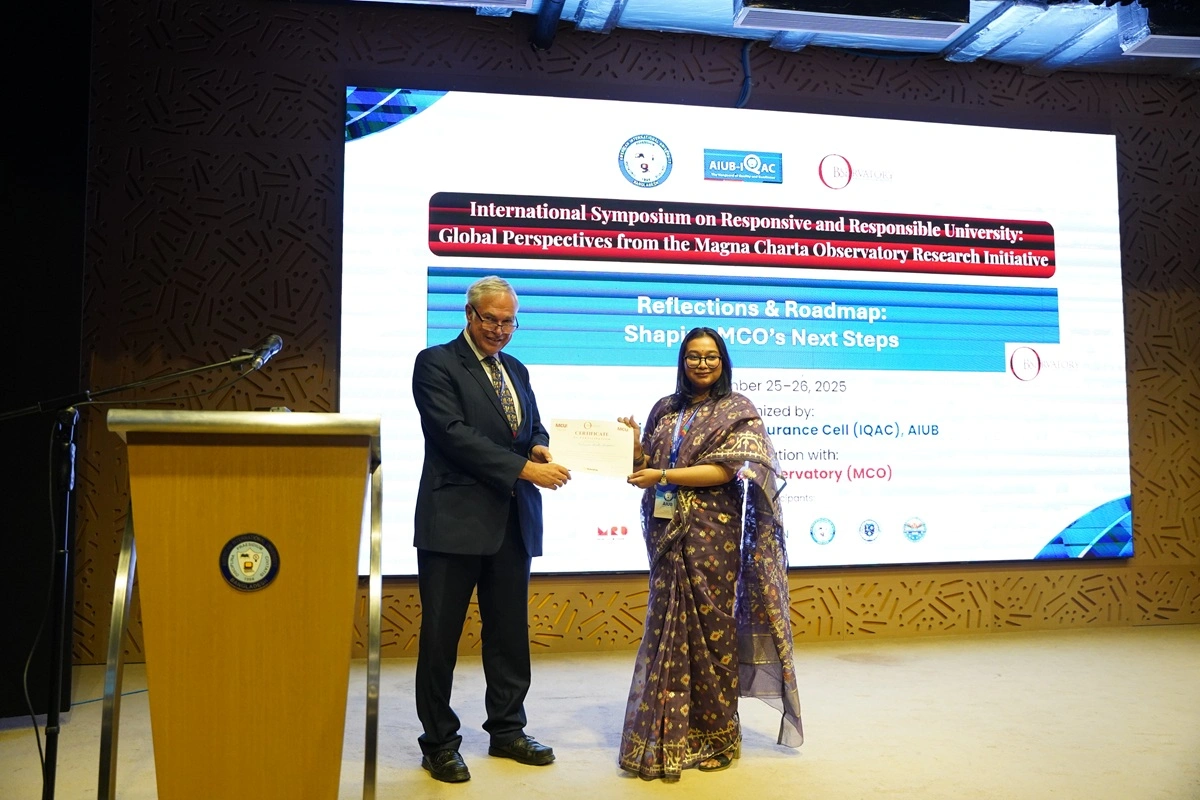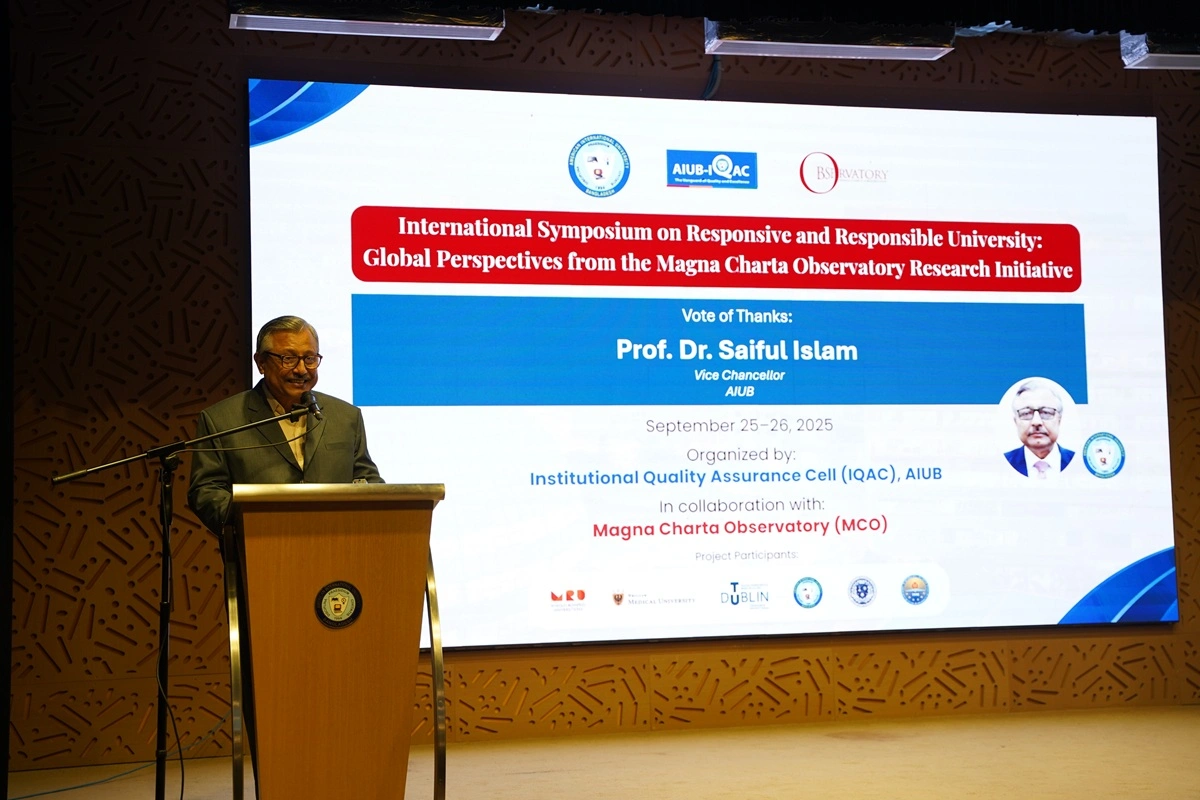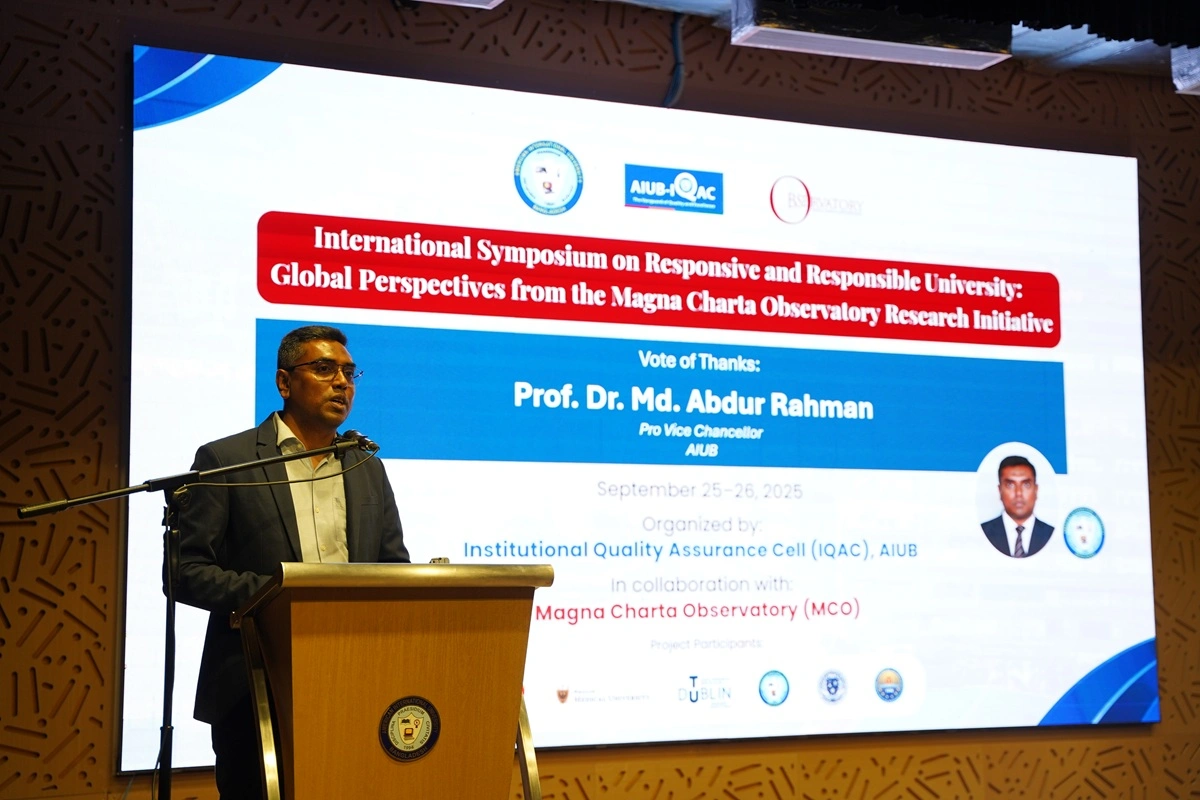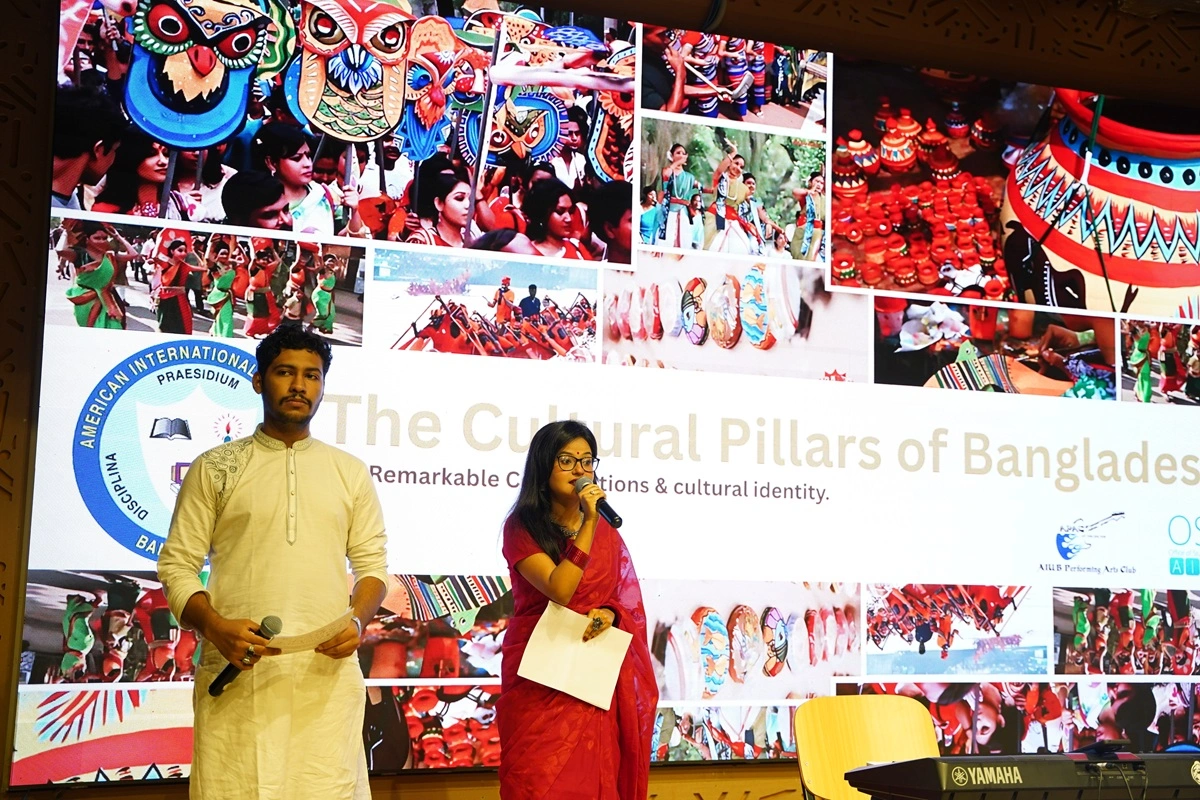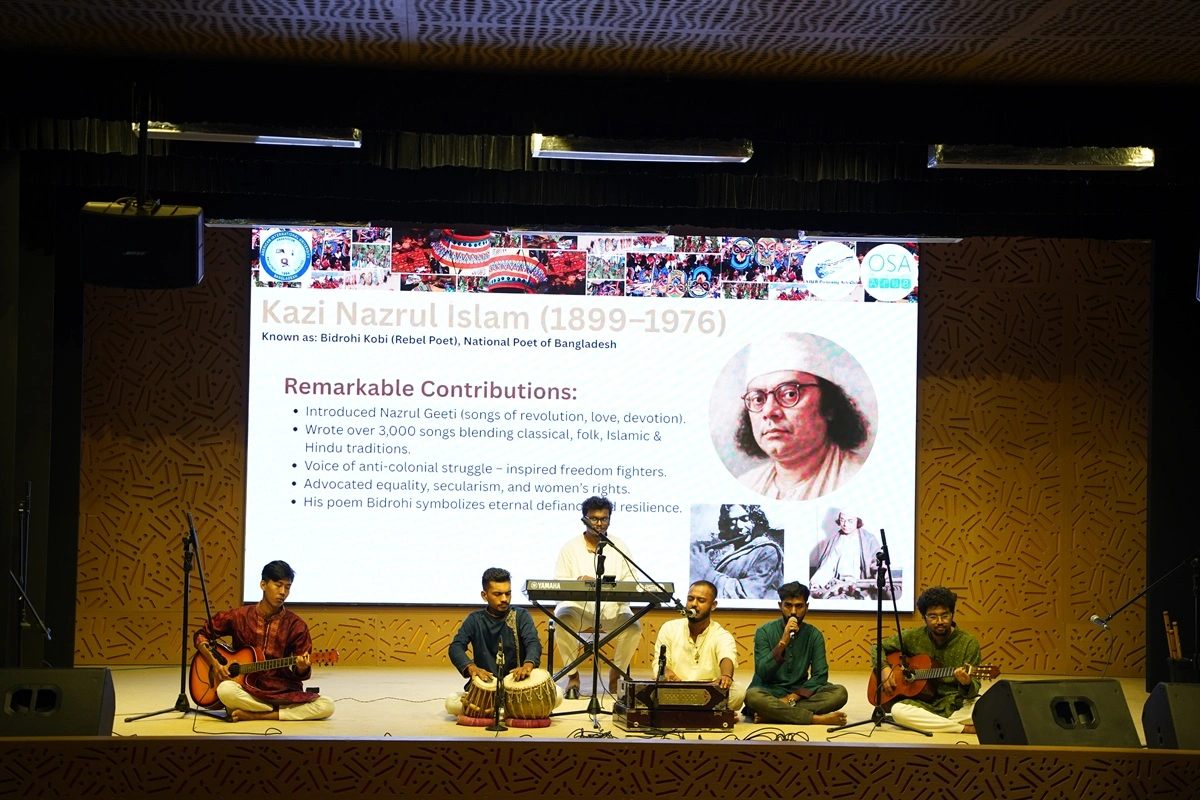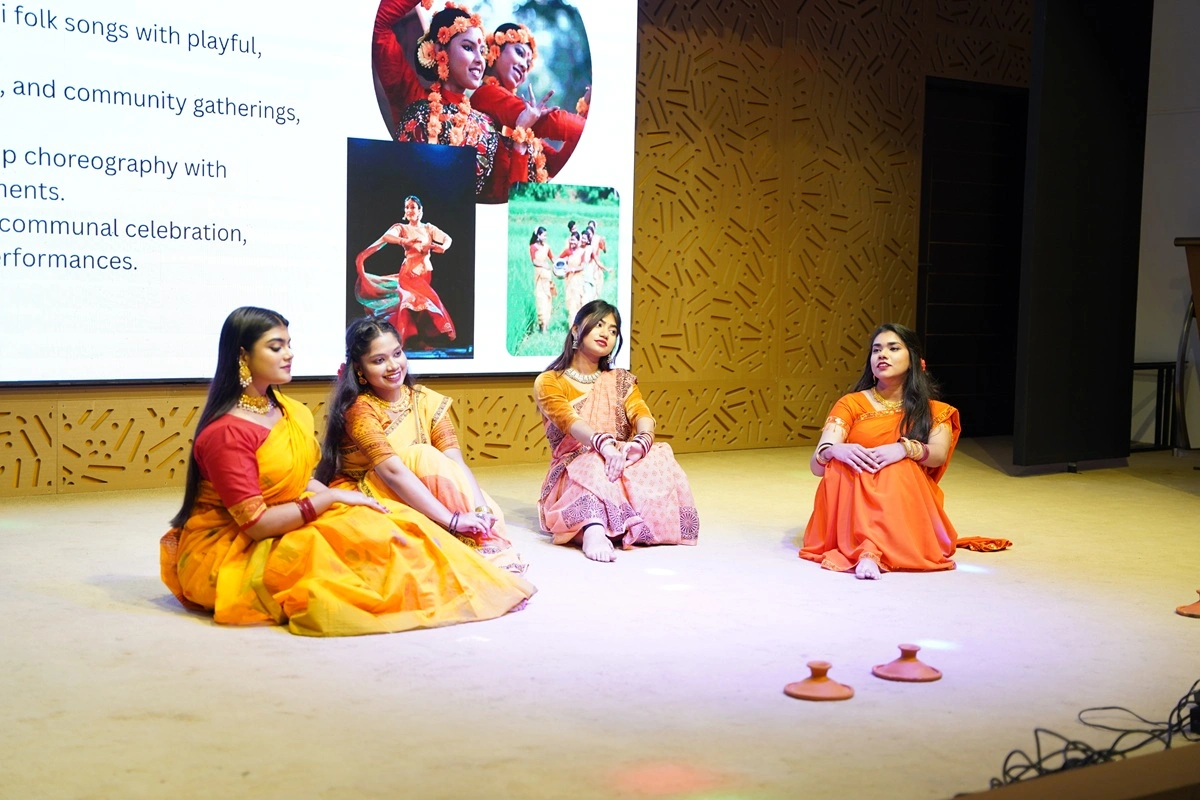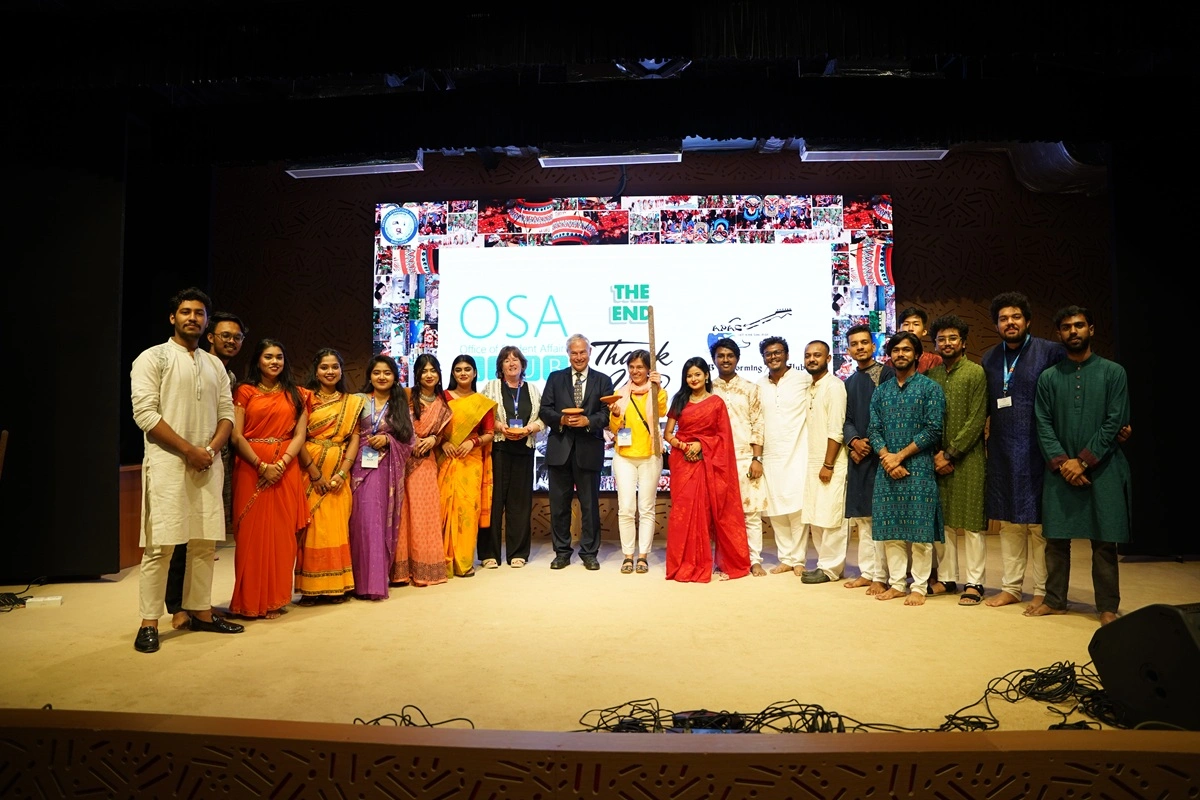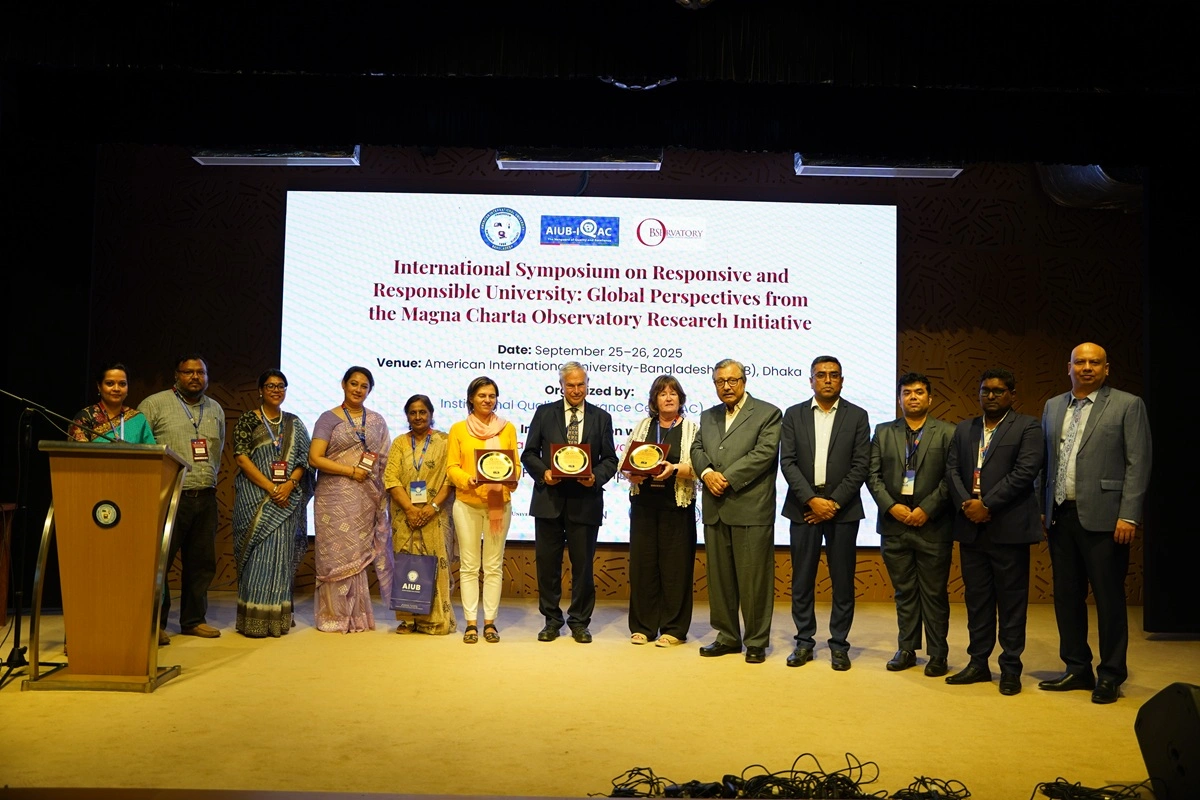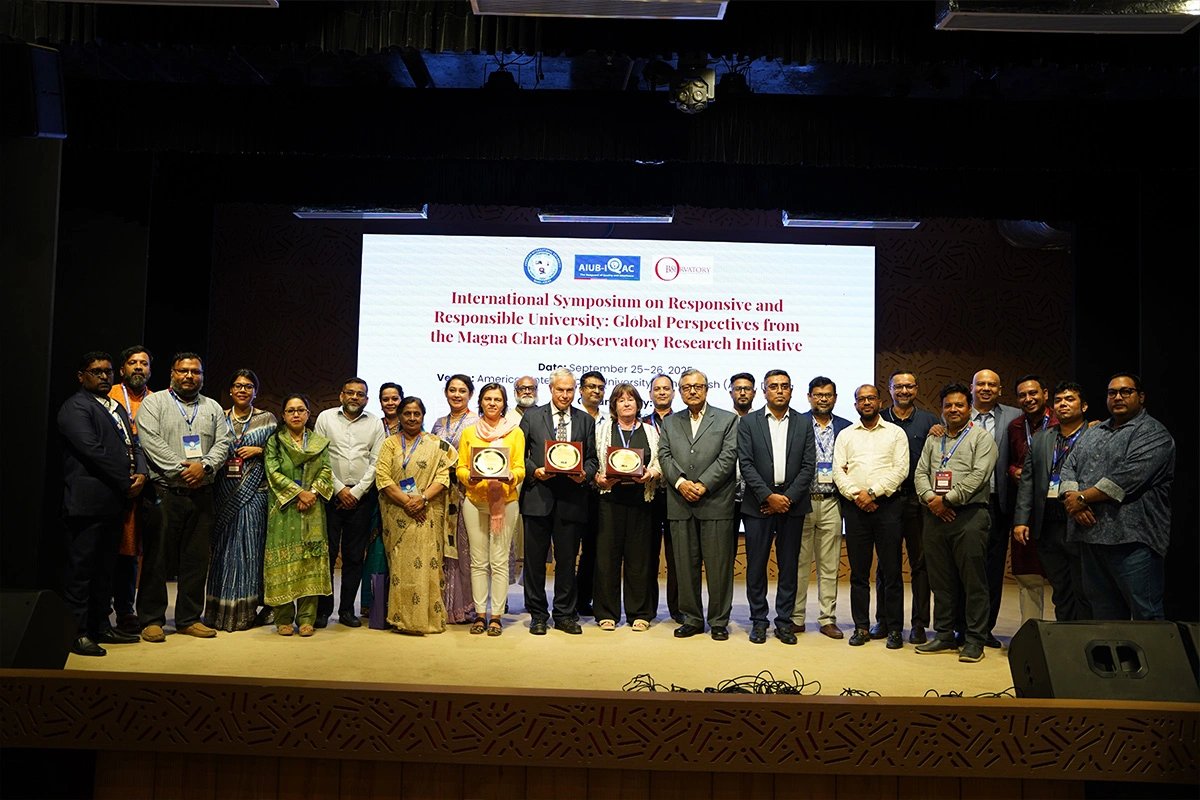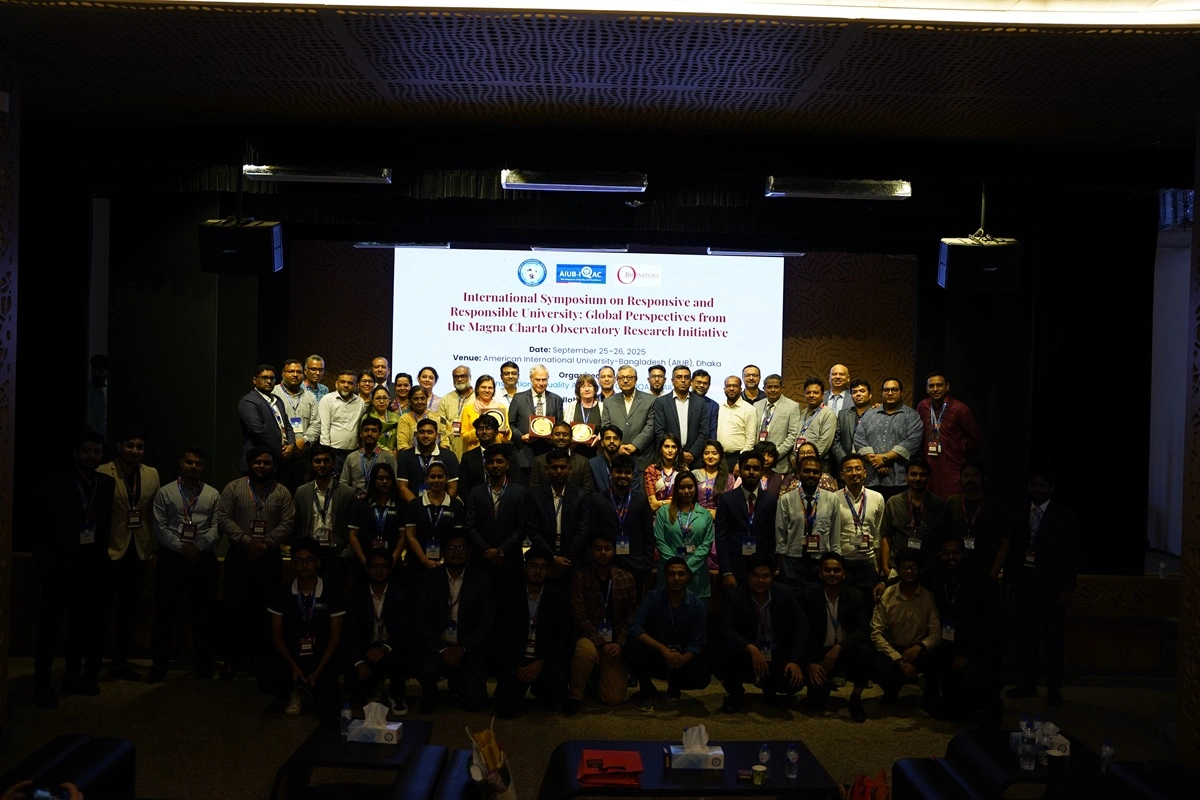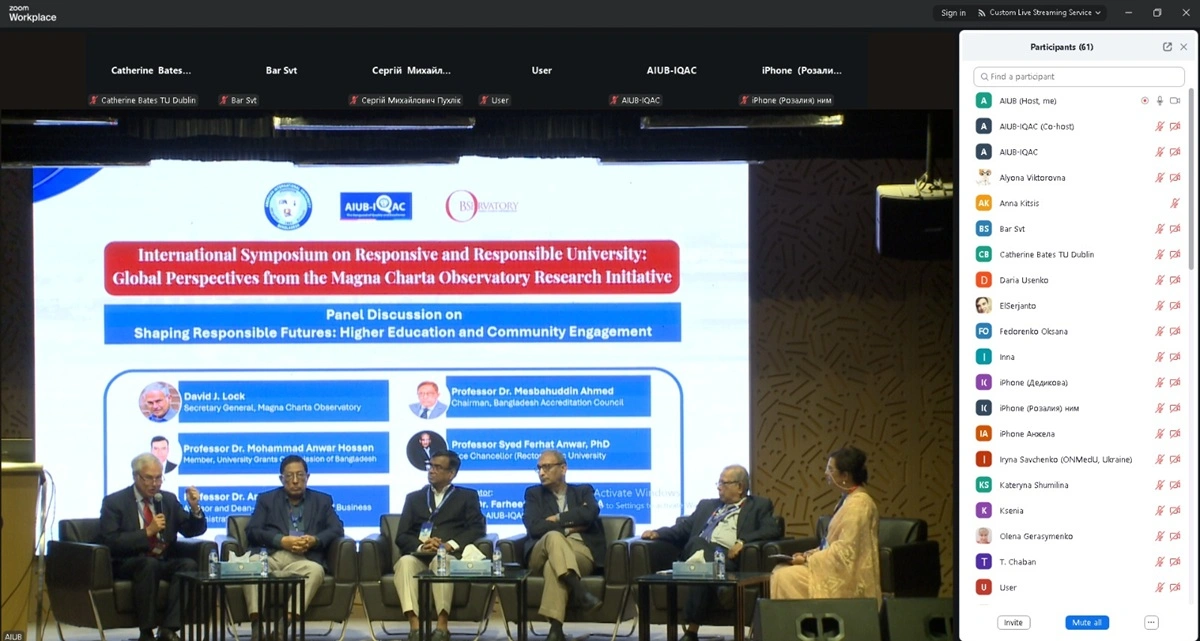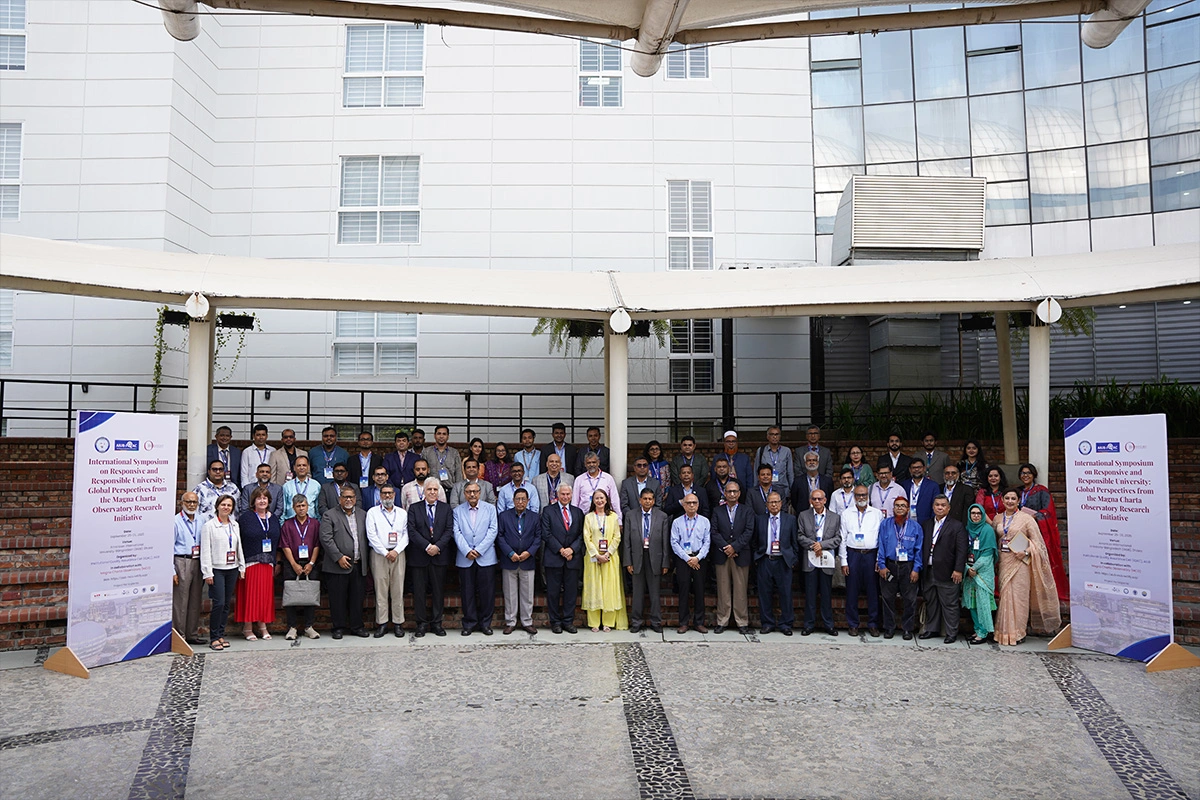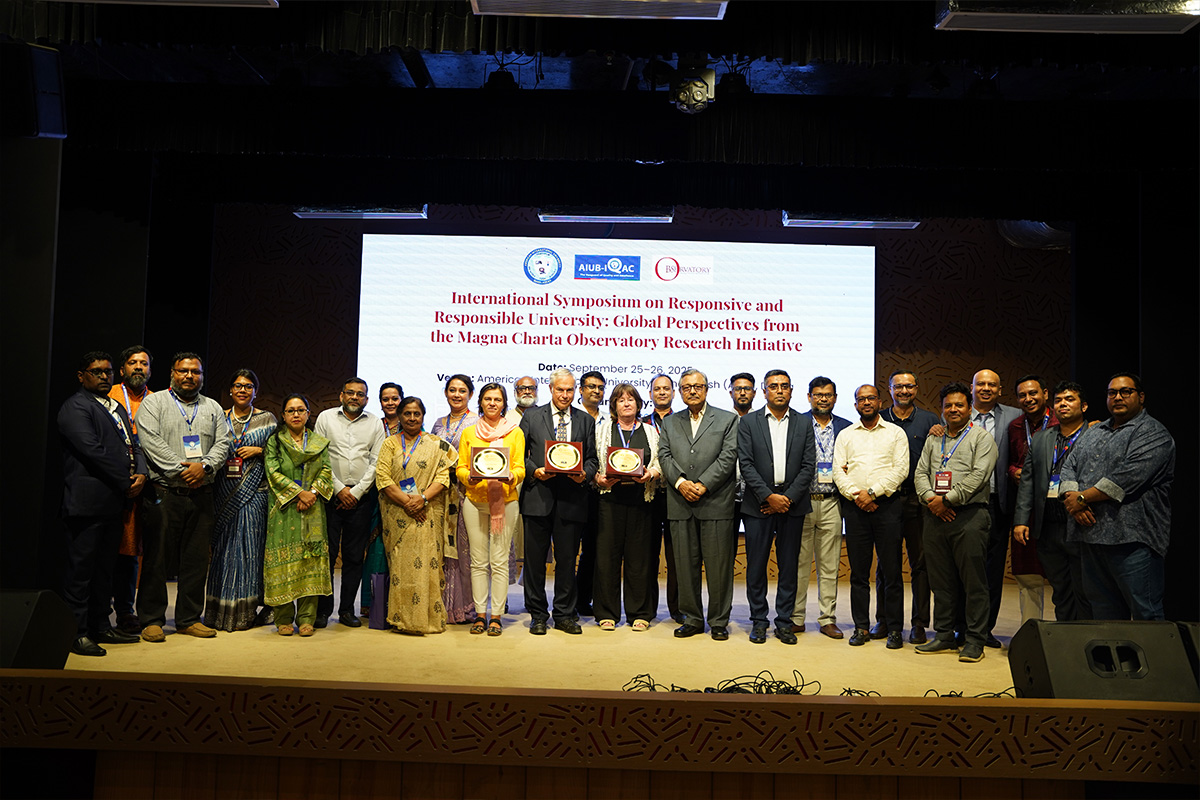The American International University-Bangladesh (AIUB), through its Institutional Quality Assurance Cell (IQAC) and in collaboration with the Magna Charta Observatory (MCO), successfully hosted the International Symposium on Responsive and Responsible Universities: Global Perspectives from the Magna Charta Observatory Research Initiative on September 25–26, 2025, at its Dhaka campus.
The two-day symposium gathered over 150 participants, including dignitaries from the University Grants Commission (UGC), the Bangladesh Accreditation Council (BAC), the British Council Bangladesh, WePower, World Bank, Grameen Shakti, alongside Vice Chancellors, Pro Vice Chancellors, and IQAC Directors from universities across Bangladesh. The event was graced by the esteemed presence of Mrs. Nadia Anwar, Chairman and Founder Member, AIUB Board of Trustees, Dr. Hasanul A. Hasan, Founder Member, AIUB Board of Trustees, Mr. Ishtiaque Abedin, Founder Member, AIUB Board of Trustees, and Prof. Dr. Carmen Z. Lamagna, Member of the AIUB Board of Trustees, whose continuous guidance and support added significant value to the program.
As a Magna Charta Observatory (MCO) event, the symposium was widely communicated across the global higher education community, drawing over 100 online participants from MCO signatory universities in countries such as the United Kingdom, Ireland, Ukraine, Poland, and other parts of Europe, reflecting MCO’s worldwide network of more than 1,000 signatory institutions.
Day One: Global Perspectives and Engaging Discussions
The symposium commenced with welcome remarks from Prof. Dr. Carmen Z. Lamagna, Member of the AIUB Board of Trustees, who highlighted AIUB’s long-standing commitment to academic excellence, global engagement, and quality assurance.
This was followed by a keynote presentation on the background of the MCO research initiative by Mr. David J. Lock, Secretary General of the Magna Charta Observatory, who emphasized the role of universities in fostering responsibility, resilience, and social trust at both national and international levels.
The day continued with a dissemination session by Dr. Mary Deasy and Dr. Catherine Bates of Technological University Dublin, Ireland, who presented a case study on community-engaged research and social responsibility in higher education.
A major highlight of the first day was the Panel Discussion on “Shaping Responsible Futures: Higher Education and Community Engagement.” The discussion brought together Mr. David J. Lock, Secretary General of the Magna Charta Observatory; Professor Mesbah Uddin Ahmed, Chairman of the Bangladesh Accreditation Council; Professor Dr. Mohammad Anwar Hossain, Member of the University Grants Commission of Bangladesh; Professor Ferhat Anwar, Vice Chancellor (Rector) of Brac University; and Professor Dr. Anwar Hossain, Dean in Charge of the Faculty of Business Administration at AIUB. The exchange of views was highly impactful, shedding light on how higher education institutions can meaningfully engage with their communities, foster inclusivity, and address pressing societal challenges.
In the afternoon, Emeritus Professor John L. Davies, MCO Ambassador and Editor of the Research Publication, hosted a Talk Show titled “The Responsible University: Cross-Cutting Themes from All the Projects.” Drawing on his distinguished academic leadership, having served as Pro-Vice Chancellor at Anglia Ruskin University (UK) and La Trobe University (Australia), Professor Davies highlighted common lessons from the global project and inspired universities to rethink their role in shaping a responsible future.
Day Two: Shared Commitments and Student Engagement
The second day began with an engaging dissemination by Dr. Agata Strządała from Wroclaw Medical University, Poland, who presented her institution’s humanitarian and value-based response to the migration crisis following the Ukraine war.
This was followed by an online dissemination from Lithuania, where Dr. Nomeda Gudelienė and Prof. Dangis Gudelis of Mykolas Romeris University showcased how their institution supported war-affected people through responsive and responsible practices.
AIUB proudly showcased its own project on “The Responsive and Responsible University”, presented by Dr. Carmen Z. Lamagna, Dr. Farheen Hassan, Ms. Nazia Farhana, Ms. Carlin Z. Lamagna, and Dr. Rezbin Nahar. The session highlighted AIUB’s journey in integrating community engagement, sustainability, and institutional responsibility.
A dedicated segment featured AIUB students presenting innovative posters and projects on sustainable development and social responsibility. Their creativity and fresh perspectives greatly impressed both local and international guests, who praised the students for their commitment to global challenges and their ability to connect academic learning with real-world impact.
Adding to AIUB’s pride, one of its students was awarded a Certificate of Appreciation for participation in the MCO Global Essay Competition. In total, seven AIUB students took part, the highest number from any single institution globally, underscoring the university’s dedication to fostering student involvement in international academic initiatives.
Closing Reflections and Celebrations
The symposium concluded with closing remarks by Prof. Dr. Saiful Islam, Vice Chancellor of AIUB, who expressed gratitude to the international and national participants, emphasizing AIUB’s continuing commitment to the principles of responsible and responsive universities.
This was followed by a vote of thanks by Prof. Dr. Md. Abdur Rahman, Pro Vice Chancellor of AIUB, acknowledging the support of the Magna Charta Observatory and the active engagement of participants.
The event ended on a festive note with a cultural performance by the AIUB Performing Arts Club (APAC), symbolizing AIUB’s vibrant academic and cultural spirit.
The success of the symposium was made possible by the wholehearted efforts and dedication of AIUB’s faculties, administrative teams, and support staff, whose collective commitment ensured the event’s excellence. The symposium underscored AIUB’s resolve to shape higher education that is not only academically rigorous but also socially responsible, globally connected, and deeply engaged with the communities it serves.
